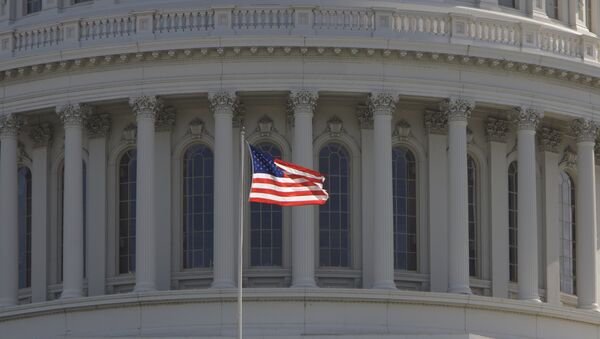Buried deep within the Intelligence Authorization Act, passed by the US Congress last week, is a provision that will put restrictions on data collected by spy agencies overseas. It’s the first time that Congress has attempted to exert control on espionage activities that are directed solely by executive authority. The legislation will soon land on President Obama’s desk for his signature.
Section to Suspend Spying?
The legislation includes Section 309, which specifies that communications which are not collected via a court order or subpoena cannot be held for longer than a period of five years — with exceptions. It relates to communications collected in foreign countries, without court oversight, under the auspices of Executive Order 12333.
— Graymalkin (@Razgriz133) December 12, 2014
What is Executive Order 12333?
— A policy document written by the Reagan administration in 1981 in the wake of the Watergate scandal
— Mandates rules for spying on "United States persons" (i.e., citizens and lawful permanent residents) regardless of location
— Covers all types of spying conducted with the President's constitutional powers, including mass surveillance
— Can be used to gather information from foreigners' communications collected abroad
— Information collected does not require a probable cause warrant or any judicial oversight
— Occupy Toronto (@OccupyToronto) December 15, 2014
Good Start, But Not Enough
Advocates for civil liberties say Section 309 is a step in the right direction, but there are still numerous loopholes in the legislation that put the privacy of Americans at risk.
In a statement, the Electronic Frontier Foundation says:
“Congress showed that it is willing to tackle the mass spying conducted under EO 12333 by inserting Section 309 into the bill. It’s one of the first times Congress has publicly stood up to spying covered by the Executive Order… Unfortunately, the procedures in Section 309 reflect the current status quo: the over-collection, over-retention and over-sharing of innocent users’ communication.”
Earlier this year, the Washington Post revealed the Executive Order is used as a justification to record and collect data from “100 per cent of a foreign country’s telephone calls.”
Under the provisions of Section 309, a US spy agency like the NSA is allowed to keep harvested data for longer than five years under a number of exceptions: if the information has value as a tool for foreign intelligence or counterintelligence; if it constitutes evidence of a crime; or if the target of the intercept is neither an American or a resident of the US.
No Time For Debate
Some lawmakers are concerned that because the bill was rushed — it was passed by the Senate on Dec. 9 and then the House the next day — there was no time for proper debate on its far-reaching implications.
“The manner in which this language was inserted late in the process, without real notice to most House Members, is indicative of the lengths that supporters of unwarranted surveillance will go to undercut the Fourth Amendment to the Constitution and is a disservice to Congress,” Rep. Zoe Lofgren said in an interview with the Washington Post.
“If members had the opportunity to adequately review this change in law, I sincerely doubt it would have passed.”





